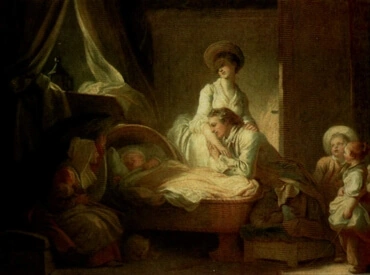42
Duke Cenez, duke Theman, duke Mabsar,

In a general sense, being "born" in the Bible represents one spiritual state producing another, usually some form of love or affection producing or "giving birth" to truth or to desires for good. This is not hard to see: If you love someone, that love naturally gives birth to ideas on how to be good to that person and make him or her happy. This is why sons and daughters in the Bible represent true ideas and desires for good. On a higher level, though, being born represents what the Writings call "regeneration," or the life-long process of putting off our natural thoughts and desires and embracing spiritual life from the Lord. This is what the Bible means when it talks about being "born again" – if we live our lives from the Lord, He will eventually take away our evil desires so that we can be "born" as angels in heaven, free of evil desires and dark thoughts. Of course, these two levels of meaning are really one: The Lord is love itself, and if we align with Him we become forms of love and truth ourselves, expressions of His love just as the desire to do something good might be the expression of your love for a friend.
3664. 'Go to Paddan Aram' means the cognitions of such truth. This is clear from the meaning of 'Aram' or Syria as cognitions, dealt with in 1232, 1234, 3249. The reason 'Paddan Aram' means cognitions of truth is that it was situated in Syria of the [Two] Rivers, where Nahor, Bethuel, and Laban lived; for 'Syria' means the cognitions of truth, see 3051. Paddan Aram has also been referred to previously in 25:20, and is mentioned again in 31:18 below; and in those places too it means cognitions of truth.